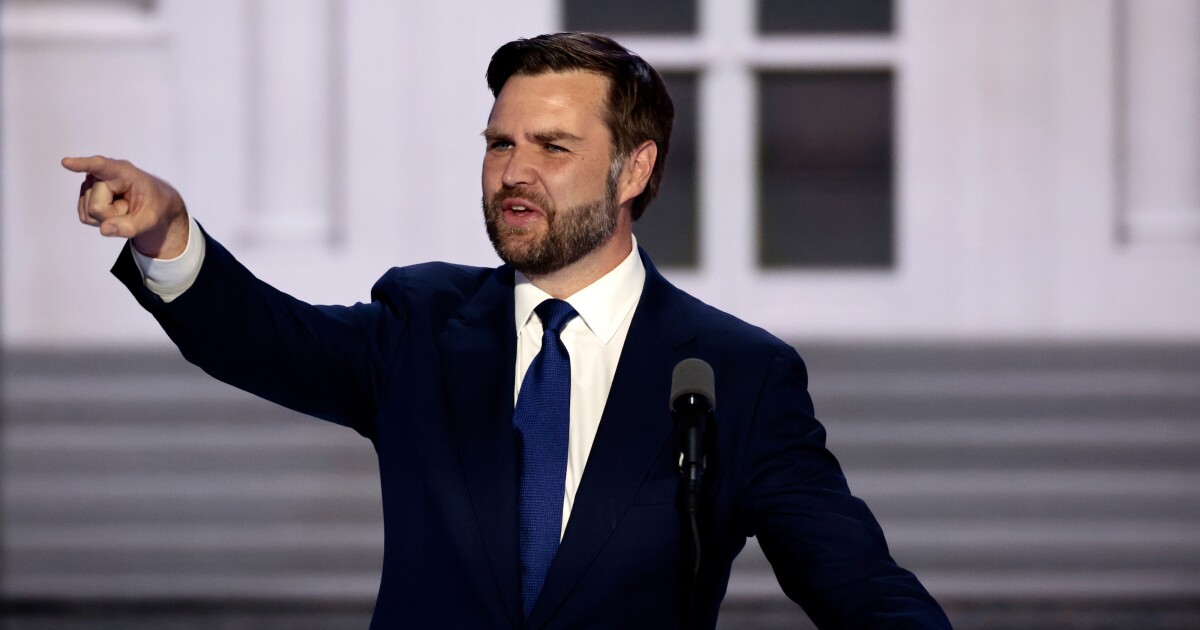J.D. Vance’s record scant on muni priorities but reveals some clues
5 min read

Former President Donald Trump’s pick for vice president for the 2024 presidential election ticket, Sen. J.D. Vance, R-Ohio, has a brief and unorthodox legislative history that touches lightly on municipal market priorities, including aversion to the state and local tax deduction, federal housing grants for sanctuary cities, green energy tax credits and environmental, social and governance policies.
Vance, 39, sits on the Senate Banking, Housing and Urban Affairs Committee and serves as the junior senator from Ohio. He became famous for his 2016 rags-to-riches memoir “Hillbilly Elegy,” served as a Marine in Iraq, went to Yale Law School, and worked as a venture capitalist before running for Senate in 2022.
The outcome of November election will
“2025 is going to be a massive debate,” said Adam Michel, director of tax policy studies at the libertarian think tank Cato Institute. “For Republicans who want a pro-growth tax code, it represents a big opportunity. You can expect Trump and Vance to champion the success of the TCJA reforms as a case in point that we should extend them and then build on them further, continuing to cut the corporate tax rate.”
Bloomberg
Trump has floated lowering the corporate tax rate to 15% from 21%. In contrast, Vance
During his two-year Senate term, the Rust Belt native has voiced a populist vision that’s broadly pro-labor, pro-tariff, pro-antitrust regulation, and anti-environmental, governance and social policies. He’s focused heavily on railway safety after the
If Vance becomes vice president, he may introduce “more of a focus on family policy” during the tax debate, Michel said. “Making the child tax credit permanent or expanding it, for example,” he said. “But beyond those types of things, I would suspect that policy will still be driven by Trump and Congress, and it would have to go through reconciliation and will driven very heavily by the Senate Finance Committee and House Ways and Means Committee.”
Vance has sponsored three tax bills during his Senate tenure, according to Roll Call, two of which relate to universities. The
Neither measure advanced in the Democrat-controlled Senate.
Vance has several times departed from orthodox Republican positions to team up with Democrats, targeting big banks and credit companies.
He and Sen. Elizabeth Warren, D-Mass., crafted legislation to c
Vance has voted against every major appropriations bill that’s come up during his time in Senate. That includes the April 2023 debt ceiling deal and both fiscal 2024 appropriations packages.
Vance’s record includes no mention of a position on tax-exempt municipal bonds,
Elsewhere on the muni agenda, he has called for eliminating any deduction, even one that’s capped, for state and local taxes, or SALT.
The TCJA capped the SALT deduction at $10,000 a year, a provision that will sunset at the end of next year. It’s an important issue to high-tax states and other municipal issuers that say the cap infringes on their ability to levy future taxes.
Vance
On the city front, in March he introduced legislation that would ban so-called sanctuary cities from receiving federal housing grants, money that cities consider key to affordable housing needs.
“Our government sends hundreds of millions in federal housing grants to sanctuary cities each year. Those funds are now on the chopping block,” Vance said in a
Vance has criticized the tax credits in the Inflation Reduction Act, some of which for the first time will go to state and local governments to encourage their clean energy investment. He
He has pushed hard against ESG issues as part of the culture war that has ensnared public finance. Among other measures, Vance co-sponsored a resolution for
He told Breitbart last year that ESG is “a massive racket to enrich Wall Street and enrich the financial sector of the country, at the expense of the industries that actually employ a lot of Ohio’s workers for middle-class jobs.”
As an economic populist and member of the “new” Republican guard, Vance has “principles but not an ideology,” said Henry Olsen, senior fellow at Ethics and Public Policy Center, speaking on a July 18
“This is a guy willing to use government power to discipline corporations that are spreading woke ideology,” Olsen said. “This is a guy who is willing to raise taxes on corporations if they outsource jobs to other countries. This is a guy who is not wedded to free market fundamentalism in the least.”







